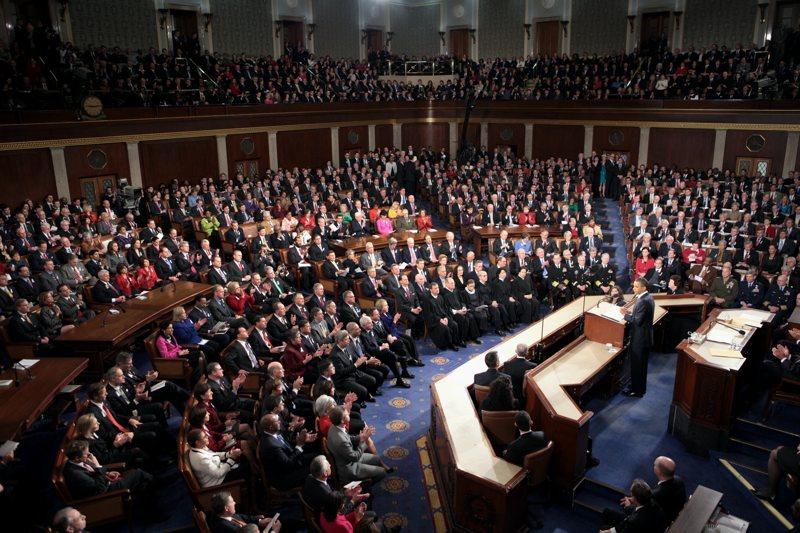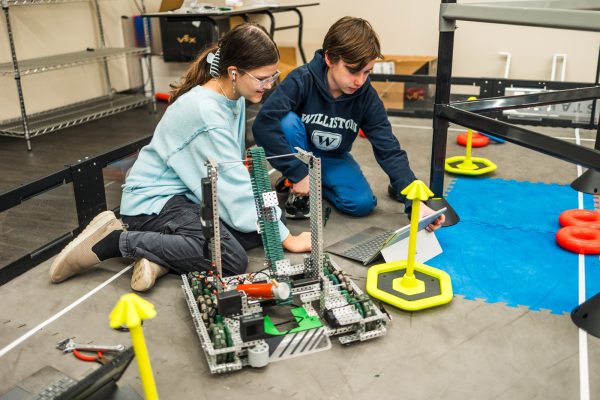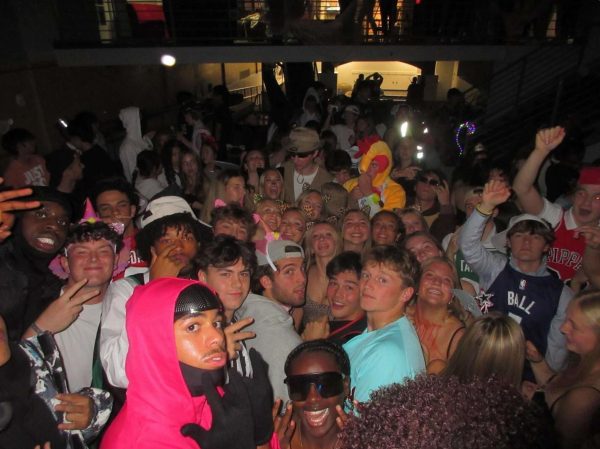State of the Union
Photo by Chuck Kennedy via Wikimedia Commons under Creative Commons License
The President addresses Congress
Annually, the President of the United States gives an address regarding the political, economic, and social state of the country up until that point. For years, America has heard all sorts of different addresses from both Democratic and Republican presidents alike. On January 20, 2015, President Barack Obama gave his sixth State of the Union address before a joint session of Congress and the American people.
Obama discussed the recent history of our nation and how we have been doing up until 2015. He happily mentioned the positive things that America has accomplished in the last fifteen years. “More of our people are ensured than ever before,” he stated. He mentioned accomplishments including the creation of jobs, the fact that more Americans are employed than ever before, and that the United States is freer from the grip of oil than it has been for over thirty years.
Continuing on a positive note, Obama assured Congress and the people of the United States that the shadow of the American financial crisis has passed us and “the state of the Union is strong.” Obama points out that it is better for everyone to be doing better than for a small percentage of people to be successful.
President Obama also had new, innovative plans for the United States for the final two years of his second term. Some of them include higher wages for Americans, equal pay between genders, avoiding Middle Eastern conflicts with the U.S., and adjusting and observing laws and rules of the Supreme Court to support all Americans.
The President stated that he “believe[s] in smarter kind of American leadership” and that we are currently “building the most competitive economy.” The plans and adjustments that will be made will affect millions of Americans around the nation who have experienced very hard times in past years.
One of those Americans, Rebekah Erler, inspired President Obama and had the privilege of being a guest to the State of the Union. “America, Rebekah and Ben’s story is our story. They represent the millions who have worked hard, and scrimped, and sacrificed, and retooled,’’ said Obama.
Rebekah Erler is one of the millions of Americans who suffered from the financial crisis of the United States during the late 2000s and early 2010s and managed to survive through it all.
Erler and her husband, Ben, were working class citizens and expecting parents in Minneapolis. In a short time’s notice, the housing and construction market dried out and Ben was searching for jobs to be able to hold up a sustainable and healthy family. Rebekah wrote to President Obama about how her family “has made it through some very, very hard times.” She, with twenty-one other Americans, were handpicked to be guests at the 2015 State of the Union.
Rebekah Erler and her family are just one example of how the American economy affects people. Many people and their families are still, to this day, without what they had prior to the economic problems. Many are homeless and have nowhere to go and no one to turn to. Obama’s mission for the next two years is essentially to help those who lost what they had, recover, and do well again. These plans are intended to help millions of Americans get back on their feet and stay there.
The plans and changes are going to affect America as a whole.How will it affect something a little more close to home? How will President Obama’s new plans affect Williston?
By the end of the decade, when the Class of 2020 will be seniors, if things go as Obama plans, two out of three jobs will require some form of higher education, community college will be absolutely free for the those eighteen and older, voting will have been made easier, and women will be paid equally to men.
Some of Williston’s own students and teachers had something to say regarding the new changes.
Regarding equal pay amongst workers, Alex Fay ’16 says, “I think that it’s an important issue. It’s surprising that we are in this day in age and we are still unable to jump this hurdle in social equality.”
On the topic of the avoidance of Middle Eastern conflicts, Wahab Al-Nafisi ’18 says, “Everyone views another couple troops differently. Some see it as invasion, others, an aid.”
From the teachers, Mr. Gunn discusses his point of view of the Middle Eastern conflicts by adding, “My sense is that every President since WWII has struggled to achieve success on all four fronts and President Obama has faced particular challenges arising out of wars begun before he came into office Iraq, and since, Syria, as well as the dynamics unlashed by the so-called ‘Arab Spring.’”
Mr. Demerath was very much in favor of the new Supreme Court adjustments saying, “We can always improve them. That’s the only way to evolve as a society.”
President Obama finished his address by letting the American people know, “a brighter future is ours to write. Let’s begin this new chapter together and let’s start the work right now.”












